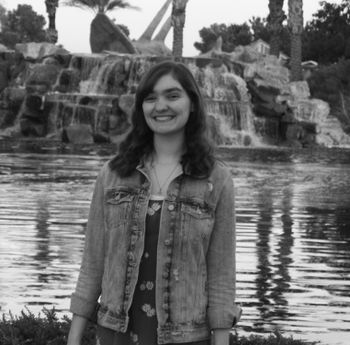Rising popularity of ‘trauma-informed teaching’ contributes to intellectually intolerant campus climates
Universities are adopting “trauma-informed” education practices that shield students from difficult subjects and situations.
Frederick Hess, Director of Education Policy Studies at the American Enterprise Institute, says there is “little to no credible evidence” they are effective.
Since COVID-19 and the resurgence of Black Lives Matter in 2020, the use of the phrase “trauma-informed teaching” in higher education has skyrocketed.
Professor Janice Carello, who wrote a book and runs a frequently referenced website on the subject, told Campus Reform the increase isn’t surprising.
“The increased interest makes sense considering ongoing conversations in higher education about the mental health and wellbeing of college students and faculty, and also considering the progress being made by statewide trauma-informed policy and practice initiatives,” she said.
Multiple semesters of online education and disruptive restrictions did leave students feeling isolated and stressed, as surveys indicate. But “trauma-informed” practices often do more than dealing empathetically with students’ real struggles.
“Unlike approaches that focus on individual behavior change, trauma-informed approaches also involve change at the system and cultural level,” Carello explains.
At the University of London, self-reported racial trauma can get students due date extensions. At La Salle University, school administration canceled classes to fight racism through a “Rest as Resistance” day, arguing that “racism is a trauma on our bodies.”
For many educators, these aspects are key to being trauma-informed. Carello notes that trauma-informed teaching is similar to other “anti-oppressive” best practices, like “safe spaces” and “pedagogy of discomfort.”
[RELATED: University of Kentucky promotes segregated ‘racial healing circles’]
This ideologically-driven approach to trauma is taught at many universities across the country, who have sponsored workshops that teach professors how to implement it in their classrooms.
During one Oct. 21 “Feminist Trauma-Informed Pedagogies“ workshop at Penn State, Women’s Studies Professor Jill Wood explained that students are drawn to her classes because they are “a place where we make meaning of systematic forms of oppression that individually display as trauma.”
“Trauma is not coincidental. It’s connected to larger power structures and systems,” she said, adding that she tries to help students connect their experiences to “larger theoretical frameworks.”
Her goal goes beyond covering class content. It’s about something more “long-term” that encourages students to “learn about themselves and other students.”
“When I talk about long-term learning objectives from a trauma-informed teaching perspective, I really mean that true learning often extends beyond the course content so that students can learn to start to trust their own experiences, voices, and can consider how they want to interact with the content,” Wood told Campus Reform.
For Wood, the way students gain knowledge and the way she gains knowledge may be different, but that doesn’t make them right or wrong.
“When students arrive to class, tired, hungry, stressed out, traumatized, marginalized, I consider that a valid way of knowing about their own lives,” she said in the workshop.
To mitigate trauma, Wood has used practices like starting class with meditation, leading breathing exercises, or holding class outside with puppies.
Similar practices were described in an article published by UC Hastings Law, which detailed how professors create “inclusive classrooms” through trauma-informed teaching--something they say was especially vital “in the wake of the Black Lives Matter movement.”
Practices included reminding students who encounter “heterosexual marriage” in case law that there are “many other valid relationships structures” to providing content warnings for potentially sensitive subjects, both in writing and in class.
Frederick Hess, Director of Education Policy Studies at the American Enterprise Institute, says that there is “little to no credible evidence about the impact of these practices.”
“They are rarely studied, and what passes for research is frequently an advocate’s description of a program or a case study without valid or reliable outcome measures,” he said. “And I think there are credible concerns that they lead campuses to lower expectations or excuse student performance that would otherwise be deemed unacceptable.”
One practice often recommended by proponents of trauma-informed teaching has been studied: trigger warnings. Early research shows that such warnings, at best, do not work, and at worst, may actually cause harm.
A 2018 study analyzing reactions among individuals who have not experienced trauma found that trigger warnings “may foster a self-fulfilling prophecy that increases anxiety for those individuals who believe that words can harm them” and serve to “[reinforce] the centrality of trauma to individuals’ identities.”
Ascribing trauma to a wide range of students based on “theoretical frameworks” or perceived identity could have unintended consequences.
Recent surveys have shown students are increasingly intolerant of opposing views, with a FIRE survey revealing a significant number of students believe it is acceptable to shout down a speaker.
As Campus Reform reports, conservative clubs frequently find their events protested and attacked on social media, displays vandalized, and members harassed.
The message doesn’t have to be political. On this years’ anniversary of 9/11, flag displays honoring victims killed in the terrorist attacks were destroyed by offended students at multiple universities across the country. At the University of Virginia, flyers for an event defending Thomas Jefferson were vandalized.
Is it possible that students act out in this way because that is how they are taught?
While drawing a researched-based link between cases of intolerance and trauma-informed teaching is difficult, Hess says it is hard to ignore the correlation.
“I think there’s a valid concern that these practices are loaded with enough ideological baggage and so aggressively teach students to think of themselves as fragile victims in a hostile world that they frequently wind up, intentionally or no, creating campus climates that are ultimately less tolerant of intellectual difference,” he said. “And that’s a cruel irony.”
Campus Reform reached out to Penn State, UC Hastings Law, and every individual mentioned in this article.
Follow the author of this article on Twitter @katesrichardson.

